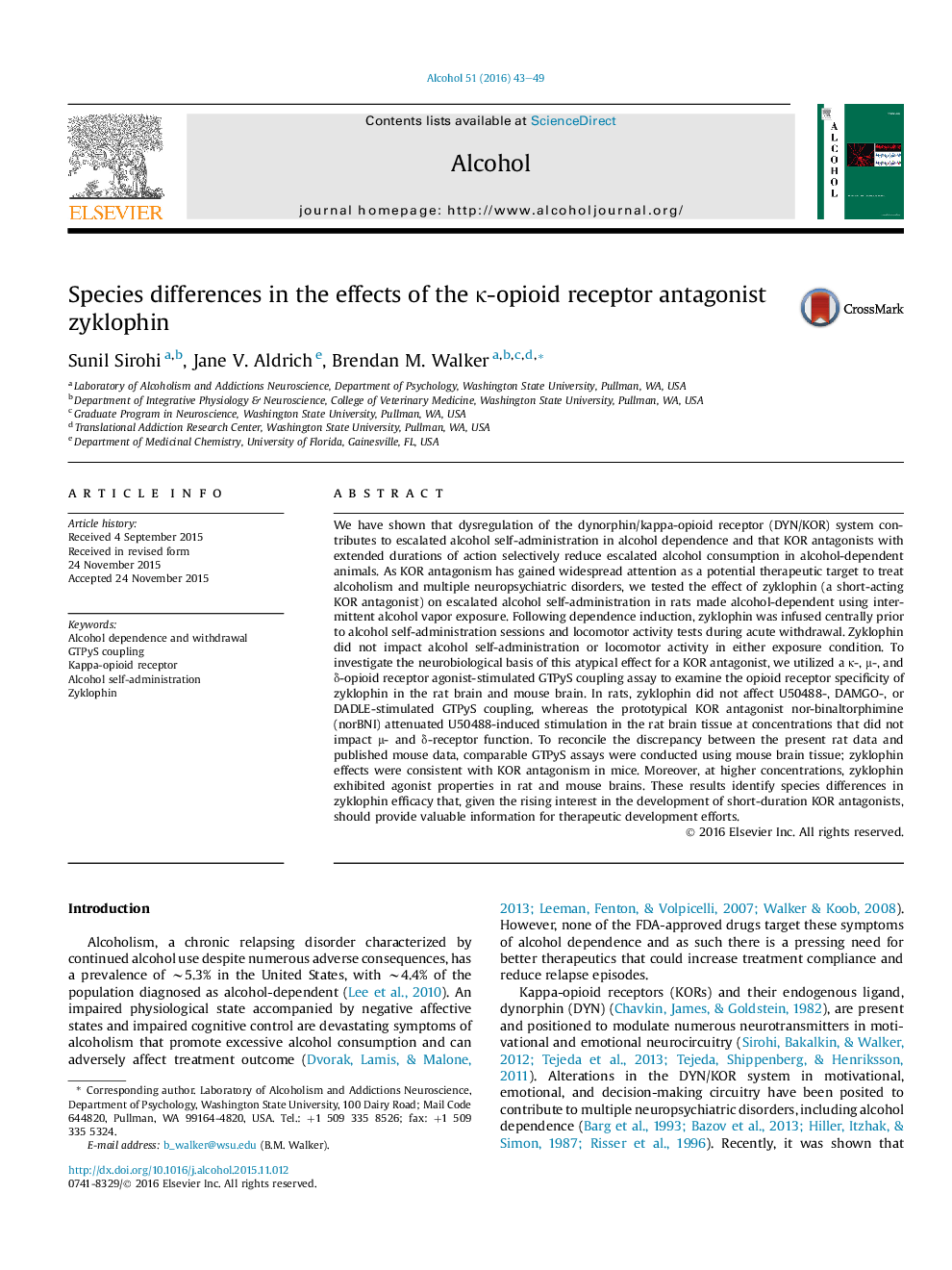| Article ID | Journal | Published Year | Pages | File Type |
|---|---|---|---|---|
| 1066783 | Alcohol | 2016 | 7 Pages |
•Zyklophin did not impact alcohol dependence-induced escalated alcohol consumption.•Zyklophin did not antagonize κ, μ or δ agonist-stimulated effects in the rat brain.•In the mouse brain, zyklophin displayed KOR antagonism at lower concentrations.•At higher concentrations, zyklophin behaved as an agonist in rat and mouse brains.
We have shown that dysregulation of the dynorphin/kappa-opioid receptor (DYN/KOR) system contributes to escalated alcohol self-administration in alcohol dependence and that KOR antagonists with extended durations of action selectively reduce escalated alcohol consumption in alcohol-dependent animals. As KOR antagonism has gained widespread attention as a potential therapeutic target to treat alcoholism and multiple neuropsychiatric disorders, we tested the effect of zyklophin (a short-acting KOR antagonist) on escalated alcohol self-administration in rats made alcohol-dependent using intermittent alcohol vapor exposure. Following dependence induction, zyklophin was infused centrally prior to alcohol self-administration sessions and locomotor activity tests during acute withdrawal. Zyklophin did not impact alcohol self-administration or locomotor activity in either exposure condition. To investigate the neurobiological basis of this atypical effect for a KOR antagonist, we utilized a κ-, μ-, and δ-opioid receptor agonist-stimulated GTPyS coupling assay to examine the opioid receptor specificity of zyklophin in the rat brain and mouse brain. In rats, zyklophin did not affect U50488-, DAMGO-, or DADLE-stimulated GTPyS coupling, whereas the prototypical KOR antagonist nor-binaltorphimine (norBNI) attenuated U50488-induced stimulation in the rat brain tissue at concentrations that did not impact μ- and δ-receptor function. To reconcile the discrepancy between the present rat data and published mouse data, comparable GTPyS assays were conducted using mouse brain tissue; zyklophin effects were consistent with KOR antagonism in mice. Moreover, at higher concentrations, zyklophin exhibited agonist properties in rat and mouse brains. These results identify species differences in zyklophin efficacy that, given the rising interest in the development of short-duration KOR antagonists, should provide valuable information for therapeutic development efforts.
